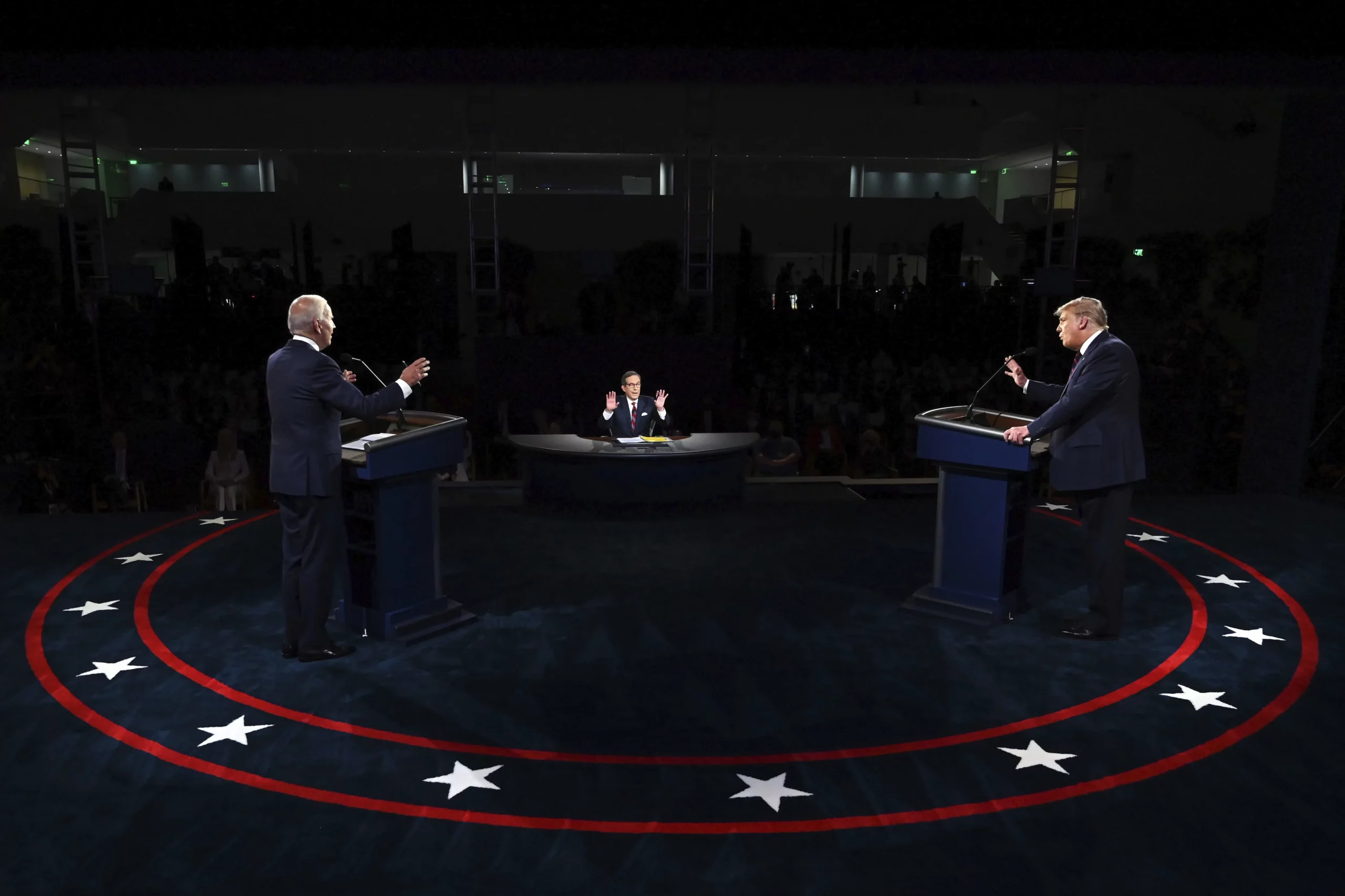

The debate between President Joe Biden and former President Donald Trump is unlikely to change the minds of voters who are currently tapped into politics, one expert says.
History shows debates have little impact on the outcome of a presidential race, but they do provide a platform where a large number of Americans will get to hear from both candidates. According to Nielsen Media Research, 73 million people watched at least some of the first Trump-Biden debate in 2020.
The June debate presents a unique challenge: how to engage people with two unpopular but already well-known candidates so early in the election cycle.
“Debates tend to be the most viewed moments of a single campaign. We don’t know that’ll be the case this time because it’s coming so early,” Thomas Hollihan, a professor at the University of Southern California’s Annenberg School for Communication and Journalism, told the Washington Examiner. “People who are undecided or late decided voters don’t pay a lot of attention to politics until the month before they actually have to go cast a ballot.”
This debate will mark the first presidential debate between a former president and sitting president. Being so, most Americans are quite familiar with both candidates.
“We’re in a situation where the core supporters for each candidate are really baked in. They’re not going to change their opinions. Both these candidates have some of the strongest negatives we’ve ever seen, and it’s much more difficult to change a negative perception than a soft positive perception,” He said.
Debates typically take place in the fall after the conventions. Due to the fact that both men became the presumptive nominees early in the election cycle, the debate and political news cycle has moved that much earlier.
The debate will be hosted on CNN on June 27, with a new set of rules that both candidates have agreed to. There will be no live audience, no pre-written notes allowed, aids cannot be consulted, and perhaps the biggest change: microphones can be turned off if someone is being disruptive.
Hollihan believes that this could be an advantage for Trump.
“[Trump] came across so badly in the debates in 2020 against Biden that he really offended a lot of a lot of voters who weren’t his most strident partisans,” Hollihan said. Biden is largely seen as the winner of both presidential debates in 2020.
“If they turn off his microphone, and he has to kind of confine himself a little bit to what constitutes normal civil interaction, that will actually help him with independent voters,” Hollihan continued.
Hollihan said, if anything, voters take away mistakes from debates. He pointed to a 1992 presidential debate in which then-President George H. W. Bush was asked about the national debt, but the voter who asked the question was implying a question about the ongoing recession.
She asked how the recession had “personally” impacted each candidate. Bush’s answer was viewed as subpar when he said the voter “ought to be in the White House every day,” and Bill Clinton was able to make a strong, memorable “I feel your pain” moment.
CLICK HERE TO READ MORE FROM THE WASHINGTON EXAMINER
Hollihan said Biden’s fault could be similar to Bush’s as the incumbent: making a memorable mistake in the debate.
“The big thing for Biden is can he avoid a mistake? Biden is sort of predictable. His positions are pretty well known. He’s pretty calm. He’s an institutionalist. The key challenge will be can he avoid the mistake that comes to dominate the after-debate media coverage,” Hollihan said.





